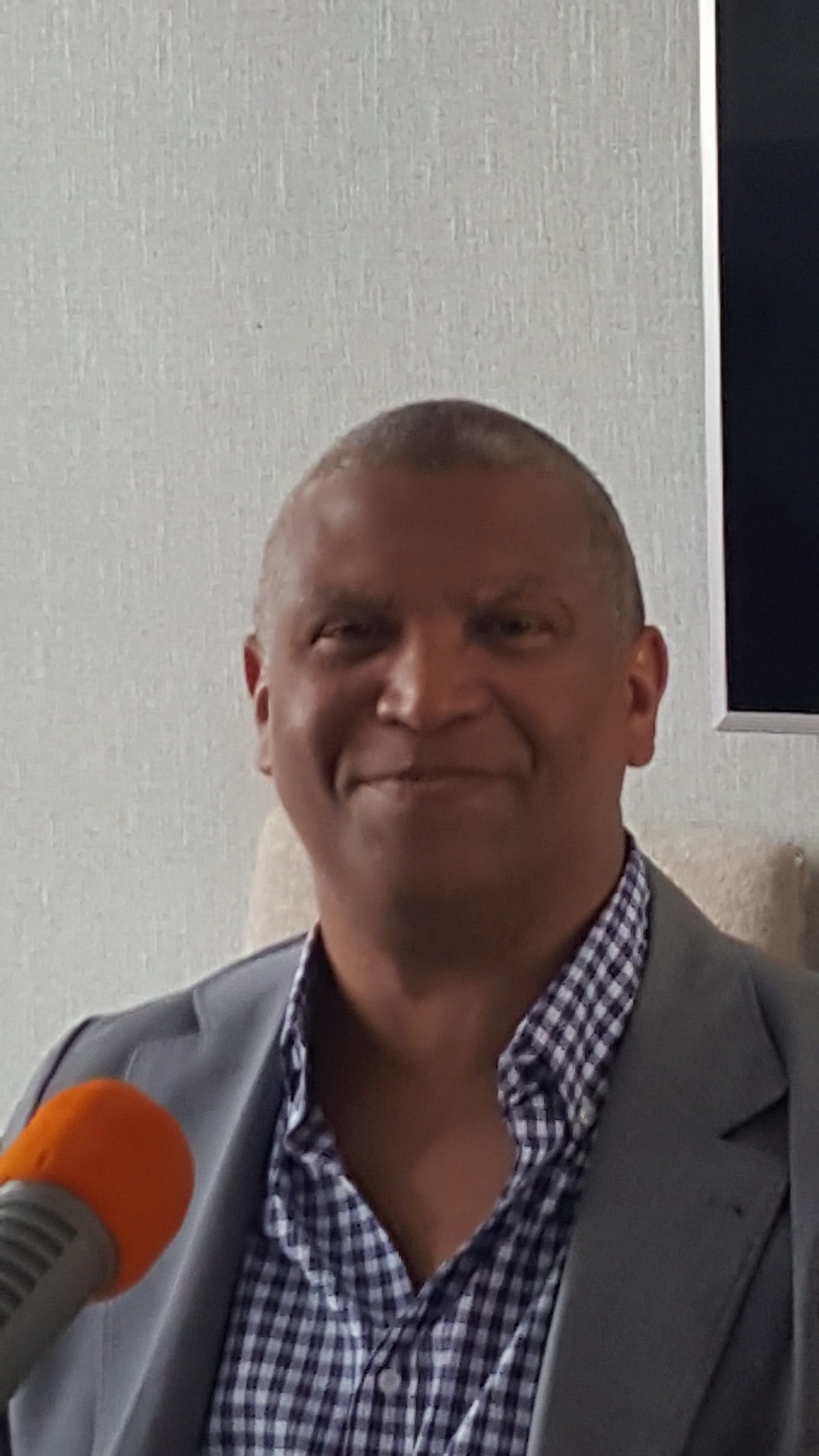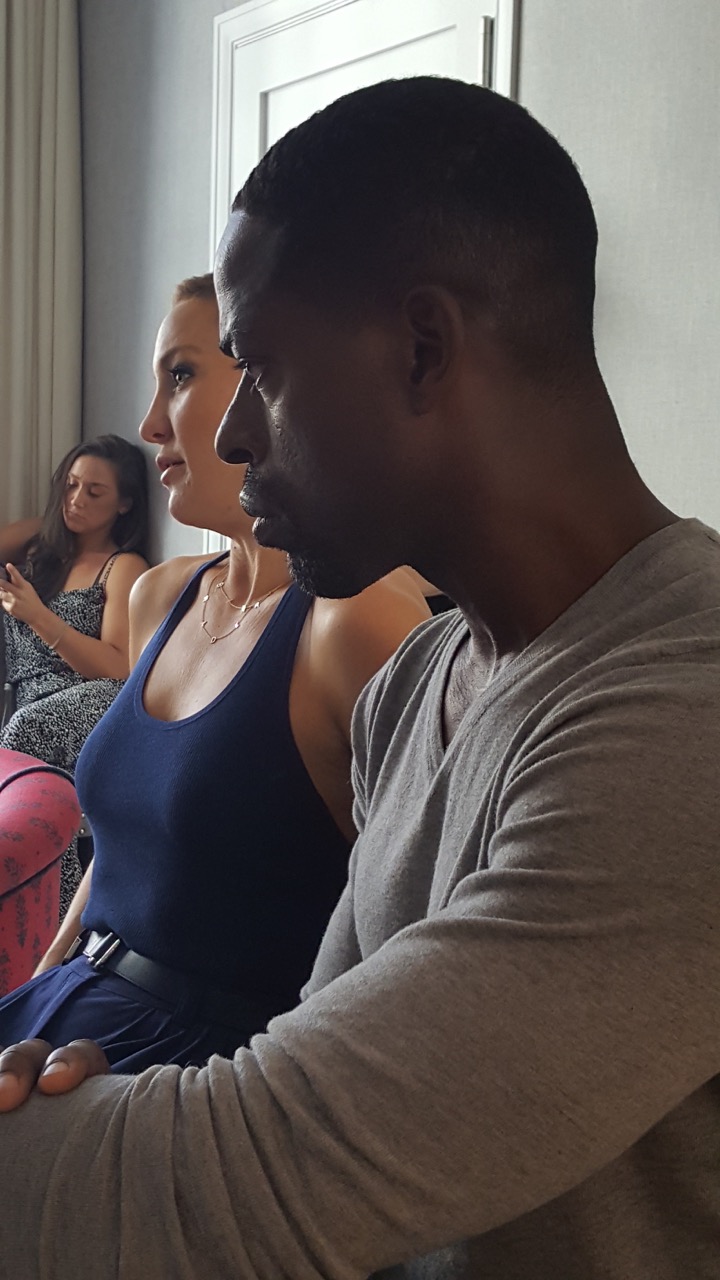Thurgood Marshall said it elegantly and honesty, when he said that “sometimes history takes things into its own hands.” The more brutal assessment is that history is told by the victors not the victims so the truth is rarely part of what really happened and therefore history is a flimsy and mostly, false. In the new film “Marshall” director Reginald Hudlin takes the audience back to 1940, long before he sat on the US Supreme Court or claimed victory in Brown v. Board of Education Here, Thurgood Marshall (Chadwick Boseman) is a young rabble-rousing attorney for the NAACP. The tightly directed film explores one his greatest challenges in those early days: the case of black chauffeur Joseph Spell (Sterling K. Brown), accused by his white employer, Eleanor Strubing (Kate Hudson), of sexual assault and attempted murder. While most of Marshall's work is in the south, the Spell case lands him in the wealthy white enclaves of Connecticut, where racism is never far from the surface. Angry picketers and tabloid headlines scream for Spell's conviction as black servants are fired by their fearful white employers.
Marshall's attempt to fight for his client is stymied by Judge Colin Foster (James Cromwell), who
allows him to attend the trial, but not speak. This leaves the defense in the shaky hands of Samuel
Friedman (Josh Gad), who has no interest in trying this case. Local prosecutor Lorin Willis (Dan Stevens) senses an easy victory.
Marshall and Friedman struggle against fear and prejudice -- and each other -- as they unravel
the twisted tale to its shocking conclusion, with their client's life hanging in the balance. Largely forgotten by history, The State of Connecticut v. Joseph Spell helped lay the groundwork for the Civil Rights Movement to come and informed the legal doctrine of one of America's greatest jurists.
“Marshall” stars Chadwick Boseman (“42”), Josh Gad ("Book of Mormon"), Kate Hudson (“Deepwater Horizon”), Sterling K. Brown (This Is Us, Whiskey Tango Foxtrot), and James Cromwell ( The Green Mile, LA Confidential). Hudlin also serves as producer with Paula Wagner (“Mission Impossible”) and Jonathan Sanger. Chadwick Boseman is co-producer.
Here is a brief excerpt from an interview with Marshall's; director/producer Reginald Hudlin.
Q: Why do you call Thurgood Marshall a superhero.
Reginald Hudlin: Thurgood Marshall is not just a civil rights activist, he's a freedom fighter. He’s a superhero. All Superheroes at the beginning [always ] break the rules because the rules are not just that’s why Thurgood Marshall is a superhero.
Q: What made you say yes to directing this film?
RH: Well, I was not interested in making a classic cradle to the grave biopic. True Marshall is one of the greatest lawyers in the history of America but “Marshall” is also a legal thriller which gives an insight into who we are today by looking at our history.
Q: Not many people know this case but the subsequent trial of Joseph Spell in Connecticut was
anything but routine.
RH: Exactly. In 1940, Connecticut socialite Eleanor Strubing was found wandering down a road. and she claims she was sexually assaulted and almost murdered by her chauffeur [JOSEPH SPELL] . The case is shocking and sensational and if it happened today, it would be all over TMZ
Newspapers printed every graphic detail of the alleged crime, all of them filtered through race. Joseph Spell was often referred to as "the colored servant" or "the Negro chauffeur's in press coverage, perpetuating a "black v. white" narrative that hinted at an unspoken truth in Connecticut: racism in America was not confined to the southern states.
Q: Legendary songwriter Diane Warren wrote a song especially for this film titled "Stand Up for Something". How did that happen?
RH: I was producing the 88th Annual Academy Awards. Warren had been nominated for 'Til it Happens to You, a song she co-wrote with Lady Gaga for the film “The Hunting Ground.” She heard through the grapevine that I was directing “Marshall” and she wrote Stand Up for Something and she infused the song with the rolling blues rhythm and activist message of a Civil Rights-era anthem. Then she asked R&B singer Andra Day and rapper Common to participate, and they said yes.
“Marshall” opens October 13.



